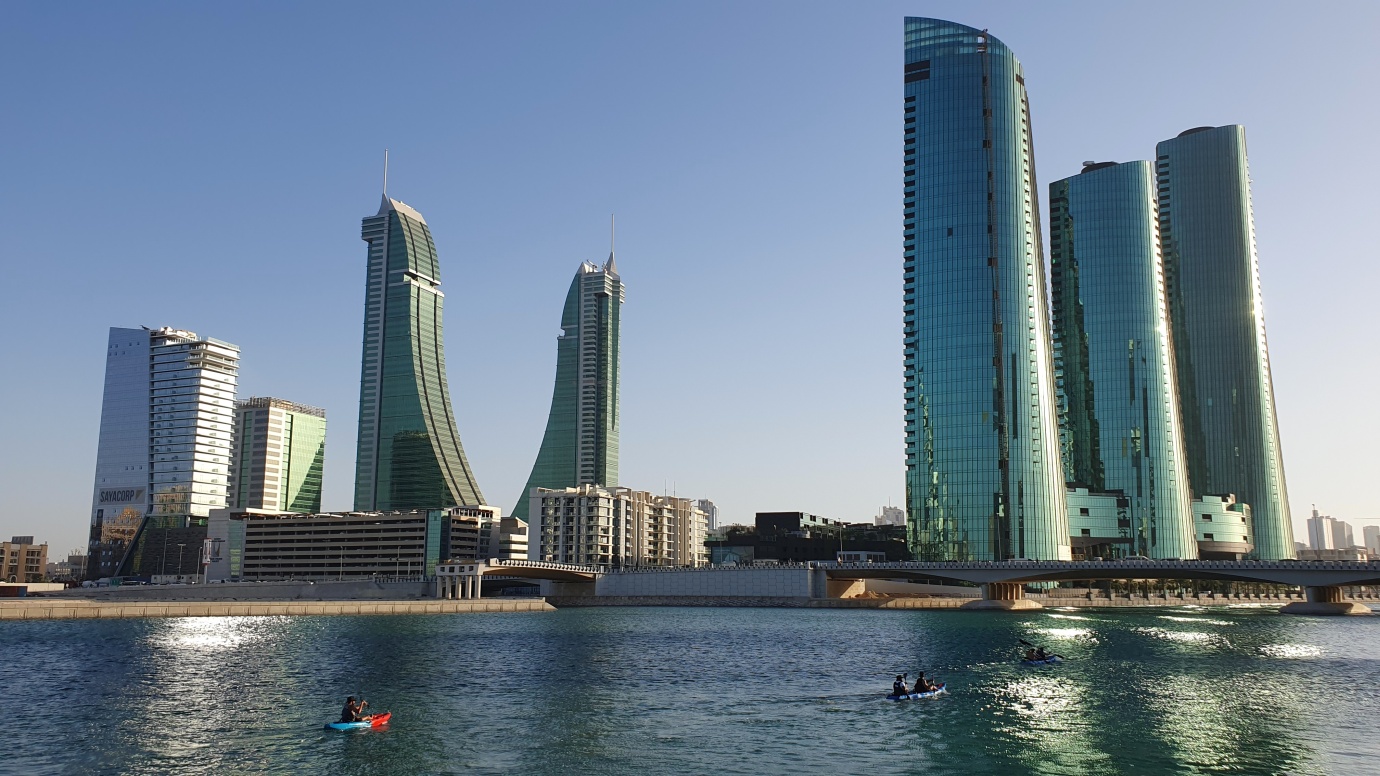We arrived at night in a small Arab state (population 1,6 mil) situated in a bay on the southwestern coast of the Persian Gulf. It is an archipelago consisting of Bahrain Island and some 30 smaller islands. Bahrain has only small petroleum stores in one of the world’s top oil-producing regions. Instead, its economy has long relied on processing crude oil from neighboring countries, and more recently, the financial, commercial services and communications sectors have grown markedly, as has tourism.
Bahrain Island is widely believed to be the site of the ancient kingdom of Dilmun, a commercial center that traded with ancient Sumer. First mentioned in Islamic chronicles about 1345 CE, it was taken by the Portuguese (1521) and the Persians (1602). It has been held, with brief interruptions, by the ruling Āl Khalīfah dynasty since 1783. Because Bahrain concluded a series of treaties (1861–1914) placing the country under increasing British protection, a British political agent was stationed at Manama from 1900, subject to the political resident for the Persian Gulf, whose headquarters were long at Būshehr, Iran. In 1946 the residency was moved to Manama, where it remained until the city became the capital of independent Bahrain in 1971.
Bahrain is renowned for its verdant groves of date palms; since ancient times, it has been an entrepôt for trade and a source of natural resources for the surrounding area. Recognizing the islands’ strategic importance, the Khalīfah have opened Bahrain’s port facilities to the naval fleets of foreign countries, including the United States. With storage and refrigeration facilities and equipment for docking and repair of large oceangoing vessels, it is now one of the most important ports of the Persian Gulf.
Border crossing
On the way from KSA, you must take the King Fahd Causeway, a 25 km long series of bridges (35 SAR / 12150 kg). After passport control, you must go to the Customs office, where they print the exit slip for the last gate. All the procedures were relaxed and quick. On arrival to Bahrain, you must get the “Visa-on-arrival” for 5 BHD (14 days stay), they do not stamp the passport, but you have to keep the visa receipt, which you will need later for money exchange. Then at customs, they did stamp our CPD and offered a cup of coffee. We chatted with friendly officers and left for the last gate, where we bought road insurance (8,90 BHD / 10 days). Next was the STC booth, where we got our sim card (30 days / 9,50 BHD / 16 GB / 500 min).


